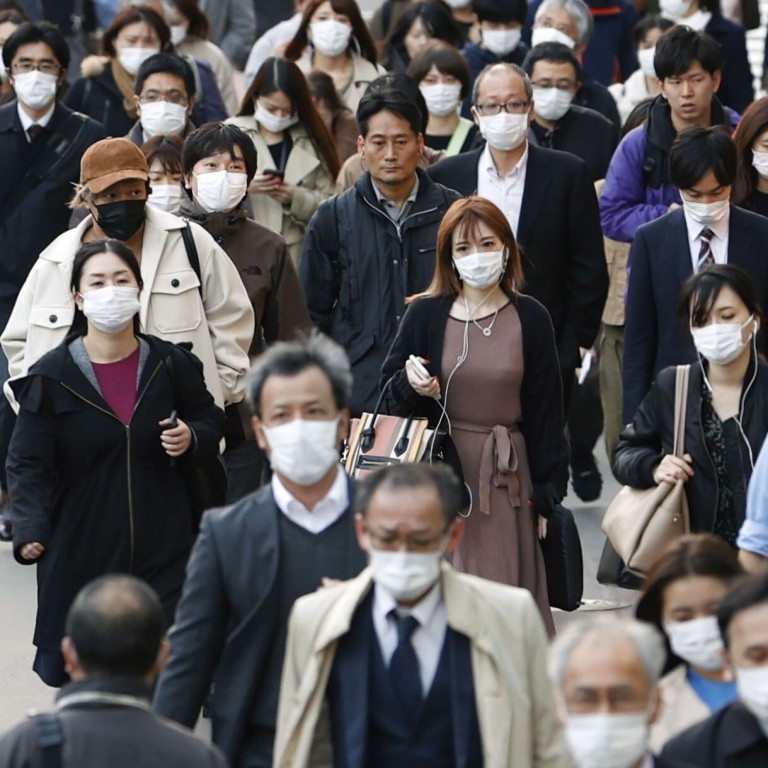
Asia-Pacific markets end mixed as global coronavirus infections reach 1 million and US weekly jobless claims hit 6.6 million
- HSBC sees third day of losses over dividend cancellation
- Hang Seng, Shanghai benchmarks decline
Asia-Pacific investors were cautious Friday, with stock markets finishing mixed as US weekly jobless claims hit 6.6 million and the world’s coronavirus infections topped 1 million.
The virus continues its destructive path, with nearly 53,000 dead around the world. About one-third of humankind is under lockdown due to the virus, which has upended supply chains and businesses, led to major job losses and shattered consumer buying habits.
The Hang Seng Index finished with a small loss of 0.2 per cent, weighed down by HSBC. For the full week, it finished with a 1 per cent loss.
HSBC fell 2.6 per cent Friday, as investors continuing to flee after it said it was cancelling its dividend. Over three sessions, it lost more than 14 per cent.
“HSBC is still going south, that is the most important thing driving sentiment,” said Louis Tse Ming-kwong, managing director of VC Asset Management. The cancellation of dividends “encouraged investors to switch out of HSBC to other high dividend yield local blue chips.”
Meanwhile, Tencent and Alibaba, two of the most heavily traded stocks, closed down roughly 1 per cent each. (Alibaba owns the South China Morning Post.)
The Shanghai Composite Index closed down 0.6 per cent. It finished with a small weekly loss.
“Even if the market has seemingly hit a trough, equities rarely bounce back to their previous highs immediately. A medical breakthrough could cause that, but for investors to get back on board the rally bus, they will need to see falling case numbers, alongside an end in sight to mobility restrictions,” said Stephen Innes, chief global market strategist at AxiCorp.
“We are entering a climate with lower or no dividends, fewer financial options, but most importantly, fewer jobs, lower output, and probably a lot fewer companies around the world. Many small and large-sized businesses will not survive this storm,” he said.
Elsewhere in Asia-Pacific, most markets advanced a bit, but not showing big movements. That contrasts with big swings in either direction seen of late.
South Korea’s Kospi Index, closed with a tiny gain of 0.03 per cent. The tech-heavy Kosdaq advanced 0.9 per cent. A government report on Wednesday showed exports slipping more than expected by 0.2 per cent in March from a year earlier.
Tokyo’s Nikkei 225 rose a teensy 0.01 per cent. On Wednesday, it plunged 4.5 per cent after its worst quarter since 1987.
Japan will give 200,000 yen (US$1,850) to each eligible household over the coronavirus, Kyodo reported. Prime Minister Shinzo Abe said Friday that he will roll out a stimulus package next week to help the economy, which was already near a recession, Reuters reported.
Abe has resisted calls to declare the world’s third-largest economy in a state of emergency.
Australia’s S&P/ASX200 lost 1.7 per cent. The country’s stocks have been especially volatile as it faces its worst recession in 90 years.
New Zealand’s S&P/NZX50 rose 0.7 per cent.
Singapore’s Straits Times Index fell 2.5 per cent. Prime Minister Lee Hsien Loong announced “significantly stricter measures” to contain the new coronavirus on Friday afternoon. The city-state will close most workplaces except for essential services beginning next Tuesday and move to full home-based learning next Wednesday.
Markets have been less volatile because traders have moved into a “wait-and-see” mode, says Brock Silvers, managing director at Adamas Asset Management. And, it’s possible, US markets may have seen their worst of the impact of the coronavirus.
“There is plenty of downbeat news, with renewed Coronavirus threats in China, the Luckin implosion, massive US unemployment data, the HSBC dividend termination, etc. But the United States has taken extreme measures to support its economy, and markets there may be past the worst of the crisis. That leaves Asian markets without much direction, which could be a beneficial way to end the week’s trading,” he said.
Luckin’s stock plunged by as much as 81 per cent overnight in the US where it is listed due to a probe into alleged fabrication of sales data by its chief operating officer.
Sign up now and get a 10% discount (original price US$400) off the China AI Report 2020 by SCMP Research. Learn about the AI ambitions of Alibaba, Baidu & JD.com through our in-depth case studies, and explore new applications of AI across industries. The report also includes exclusive access to webinars to interact with C-level executives from leading China AI companies (via live Q&A sessions). Offer valid until 31 May 2020.



